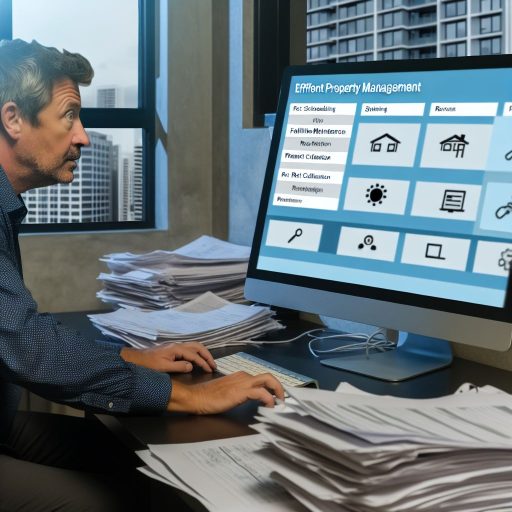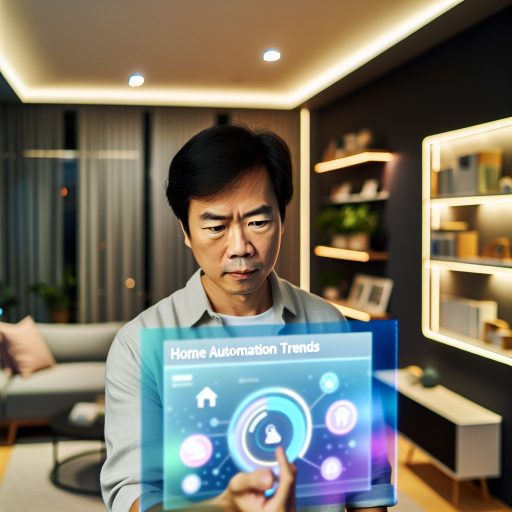Introduction to Smart Home Technology and its Role in Home Maintenance
Smart home technology transforms how homeowners manage maintenance tasks.
It integrates devices that enhance convenience and efficiency.
This technology saves time while reducing overall maintenance costs.
Homeowners can monitor systems remotely, diagnosing issues before they escalate.
Furthermore, smart sensors can alert you to potential problems.
Understanding Smart Home Devices
Smart home devices come in various forms and functionalities.
They include smart thermostats, lighting systems, and security cameras.
Each device helps streamline tasks traditionally done manually.
Consider smart thermostats that optimize energy use automatically.
Similarly, smart irrigation systems adjust water schedules based on weather data.
Benefits of Smart Home Technology in Maintenance
Smart technology lowers home maintenance costs effectively.
It does this by preventing small issues from becoming costly repairs.
For instance, smart leak detectors can notify homeowners of water leaks.
This early detection method prevents significant water damage.
Additionally, smart smoke detectors improve safety and reduce fire risks.
Cost-Saving Features of Smart Home Technology
Energy efficiency is a critical aspect of smart home technology.
Devices like smart plugs and bulbs minimize electricity usage.
They allow homeowners to control energy consumption remotely.
Moreover, regular updates can optimize device performance and lifespan.
Such efficiency translates into lower utility bills over time.
Integrating Smart Home Technology into Maintenance Routines
Integrating smart technology into existing routines is straightforward.
Start by auditing your home for suitable smart devices.
Assess which areas require frequent maintenance or monitoring.
After selecting devices, set up notifications for maintenance reminders.
This proactive approach helps ensure timely and effective upkeep.
Overview of Common Home Maintenance Costs and Challenges
Home maintenance costs can add up quickly over time.
These costs often include repairs, replacements, and inspections.
Routine maintenance is essential for preserving property value.
However, homeowners frequently face unexpected challenges.
Common Home Maintenance Expenses
Several types of expenses commonly arise in home maintenance.
- Roof repairs and replacements are significant costs.
- Heating and cooling systems require routine inspections.
- Pest control treatments can be necessary throughout the year.
- Plumbing and electrical issues can lead to costly repairs.
Many homeowners overlook the need for regular gutter cleaning.
This simple task can prevent larger, more expensive water damage later.
Factors Contributing to High Maintenance Costs
Ignoring small problems can escalate maintenance costs significantly.
For example, a leaky faucet can lead to water damage.
Furthermore, neglecting roof maintenance may cause leaks.
Such issues often require extensive repairs or even replacements.
Additionally, natural wear and tear occurs with aging homes.
The Role of Home Inspections
Regular home inspections can help identify potential problems early.
These inspections often reveal hidden issues, preventing future costly repairs.
Many homeowners fail to schedule inspections, leading to oversights.
Frequent check-ups can enhance the longevity of home systems.
Challenges of Home Maintenance
One challenge homeowners face is the lack of time for maintenance tasks.
Professional services can be expensive, further complicating budgeting.
Moreover, homeowners may lack the necessary skills for DIY tasks.
This can lead to reliance on costly contractors for even simple fixes.
How Smart Thermostats Can Reduce Energy Costs and Enhance HVAC Maintenance
Understanding Smart Thermostats
Smart thermostats are designed to optimize your heating and cooling systems.
They enable better control over your home’s temperature settings.
Additionally, they can learn your daily routines and adjust accordingly.
Energy Cost Reduction
One significant benefit is the reduction of energy costs.
Smart thermostats adjust temperatures based on occupancy.
This leads to lower energy consumption when you are away.
For instance, you can program a thermostat to reduce heating at night.
Moreover, utilizing geofencing technology enhances energy savings.
This feature adjusts temperatures based on your location.
Enhanced HVAC Maintenance
Regular maintenance is vital for an efficient HVAC system.
Smart thermostats provide reminders for filter replacements.
These reminders ensure optimal airflow and system efficiency.
Additionally, they can alert you to unusual system behavior.
This proactive approach can prevent costly repairs.
For example, they can notify you if your system is running excessively.
Access from Anywhere
Another advantage of smart thermostats is remote access capabilities.
You can control your home’s temperature from anywhere using your smartphone.
This convenience allows for quick adjustments based on your schedule.
Consequently, you can save energy even when you forget to adjust settings.
Integration with Other Smart Devices
Smart thermostats can also integrate with other smart home devices.
For instance, they work seamlessly with smart speakers and alarms.
This availability can enhance overall home automation.
Such integration allows for comprehensive control over energy consumption.
Long-term Investment
Investing in a smart thermostat is a wise long-term decision.
While initial costs may be higher, the savings are significant.
Many homeowners see a return on investment within a few years.
This return comes from reduced energy bills and maintenance costs.
See Related Content: Enhancing Real Estate Marketing With PropTech-Driven Analytics Tools
Using Smart Leak Detectors to Prevent Water Damage and Lower Repair Expenses
Understanding Smart Leak Detectors
Smart leak detectors provide homeowners with advanced protection against water damage.
These devices detect moisture levels in critical areas of your home.
They send alerts to your smartphone when they detect leaks.
Consequently, swift action can help prevent significant damage.
Benefits of Smart Leak Detectors
Using smart leak detectors can lead to substantial savings on repair costs.
They help avoid extensive water damage and mold growth.
Early detection minimizes the need for major renovations.
Moreover, they can lower your homeowners insurance premiums.
Installation Locations for Optimal Performance
Place smart leak detectors in key areas prone to leaks.
- Under sinks and in kitchen cabinets
- Near water heaters and washing machines
- In bathrooms, especially around bathtubs and toilets
- In basement and crawl space areas
These strategic placements enhance their effectiveness.
Integration with Other Smart Home Systems
Smart leak detectors work well alongside other smart home technologies.
They can integrate with smart thermostats and home security systems.
This integration promotes a cohesive approach to home maintenance.
Furthermore, you can automate responses to detected leaks.
Regular Maintenance and Monitoring
Regular monitoring ensures your devices perform optimally.
Check batteries and settings periodically for accuracy.
Staying proactive reduces the likelihood of unnoticed leaks.
Additionally, you can set reminders to test the devices.
Choosing the Right Smart Leak Detector
Select a leak detector that fits your specific needs.
Consider factors like connectivity and compatibility with other devices.
Read customer reviews to gauge reliability and performance.
Finally, choose a reputable brand for better support and warranty options.
See Related Content: The Role of AI in Improving Property Search Experiences
The Impact of Smart Security Systems on Insurance Premiums and Property Protection
Understanding Smart Security Systems
Smart security systems integrate modern technology to enhance home security.
These systems often include cameras, motion sensors, and smart locks.
Moreover, they allow homeowners to monitor their property remotely.
Insurance Premium Benefits
Installing smart security devices can lower your home insurance premiums.
Insurance companies recognize that these systems reduce the likelihood of theft.
For instance, homes with security cameras often see a 10-20% discount on premiums.
Enhancing Property Protection
Smart security systems provide real-time alerts and notifications.
They can detect and respond to potential threats immediately.
Additionally, these systems can integrate with other smart home devices.
For example, motion sensors can trigger outdoor lighting to deter intruders.
Important Features to Consider
- 24/7 monitoring services
- High-definition video cameras
- Remote access via smartphone apps
- Smart locks with keyless entry
The Long-Term Financial Impact
Investing in smart security systems is a wise financial decision.
Besides reducing insurance costs, they increase property value.
Homeowners can enjoy peace of mind knowing their property is secure.
Ultimately, this leads to fewer losses due to theft or damage.
Explore Further: Understanding PropTech’s Impact On Sustainable Real Estate Solutions
Smart Irrigation Systems
Understanding Smart Irrigation
Smart irrigation systems optimize water usage effectively.
These systems employ technology to monitor moisture levels.
They adjust watering schedules according to weather conditions.
As a result, homeowners can significantly reduce water waste.
Benefits of Smart Irrigation
Smart irrigation offers numerous advantages for homeowners.
- It conserves water, leading to lower utility bills.
- These systems can enhance plant health through precise watering.
- Homeowners enjoy increased flexibility in managing their gardens.
Types of Smart Irrigation Technologies
Several types of smart irrigation technologies exist today.
- Soil moisture sensors measure the moisture in the ground.
- Weather-based controllers adjust schedules based on forecasts.
- Smart sprinkler systems provide targeted watering in specific areas.
Choosing the Right System
Selecting the right smart irrigation system is crucial.
Consider the size of your landscape when making your choice.
Evaluate the features that best suit your watering needs.
Consult with local landscaping professionals for expert advice.
Installation and Maintenance
Installation of smart irrigation systems is straightforward.
Many options allow for DIY installation, saving costs.
Regular maintenance ensures these systems operate efficiently.
Check the sensors and controllers periodically for any issues.
Cost Savings with Smart Irrigation
Investing in smart irrigation technology pays off over time.
Homeowners experience reduced maintenance and utility costs.
Efficient watering practices positively impact the environment.
Learn More: Smart Home Technology For Luxury Real Estate Buyers

Remote Monitoring of Appliances
Understanding Remote Monitoring
Remote monitoring technology enables homeowners to oversee their appliances from anywhere.
This technology connects devices to the internet for real-time tracking.
Homeowners receive alerts regarding their appliances’ performance and condition.
Therefore, they can take immediate action to prevent issues.
Predictive Maintenance
Predictive maintenance uses data analysis to foresee potential appliance failures.
For example, smart refrigerators can signal issues with temperature fluctuations.
This allows homeowners to address problems before they lead to costly repairs.
Consequently, users can save money on emergency service calls.
Benefits of Cost Savings
Implementing smart home technology reduces long-term maintenance costs.
First, homeowners can proactively service their appliances as needed.
Second, fewer breakdowns lead to lower repair expenses.
Additionally, smart devices often operate more efficiently.
As a result, they contribute to lower energy bills.
Choosing the Right Technology
Selecting the appropriate monitoring system is essential.
Homeowners should consider compatibility with existing appliances.
Brand reputation and customer support also play critical roles.
Lastly, evaluating user reviews helps ensure satisfaction with the product.
Integration of Smart Home Devices with Home Automation for Efficient Resource Management
Streamlining Home Maintenance
Smart home technology significantly simplifies home maintenance tasks.
Automation systems monitor the condition of various appliances.
For instance, smart thermostats can optimize heating and cooling.
They adjust settings based on your daily routine.
This reduces energy consumption and lowers utility bills.
Moreover, smart irrigation systems manage garden watering efficiently.
These systems adapt watering schedules to weather conditions.
This prevents overwatering and conserves water resources.
Real-Time Monitoring and Alerts
Many smart devices provide real-time monitoring of home systems.
For example, smart smoke detectors alert you about potential dangers.
They send notifications directly to your smartphone.
Additionally, security cameras enable you to monitor your property remotely.
This increases safety and reduces the risk of theft or vandalism.
Also, smart leak detectors can sense water leaks instantly.
They send alerts, allowing for immediate repairs.
This reduces damage repair costs significantly.
Energy Efficiency and Cost Savings
Smart devices contribute to substantial energy savings.
Smart lights automatically turn off when no one is home.
Energy-efficient appliances optimize their operation times.
This helps you save on utility bills every month.
Additionally, smart power strips cut power to devices when not in use.
This discourages energy waste in your home.
As a result, you can experience noticeable savings over time.
Enhanced Comfort and Convenience
Integrating smart home technology enhances daily comfort.
Smart voice assistants can control multiple devices at once.
For instance, they can adjust lighting, temperature, and even security settings.
This level of convenience improves your everyday living experience.
Moreover, customizable schedules allow devices to operate when needed.
As a result, you can enjoy a fully tailored home environment.
Future-Proofing Your Home
Investing in smart home technology prepares your home for the future.
As technology advances, new devices can be seamlessly integrated.
This adaptability keeps your home up-to-date with the latest innovations.
Moreover, enhanced device compatibility makes automation easier.
Consequently, future renovations may require fewer updates and modifications.
This saves time and reduces long-term maintenance expenses.
The Future of Smart Home Technology in Efficient Home Maintenance
Emerging Trends in Smart Home Technology
Smart home technology continues to evolve rapidly.
Homeowners can now access a range of innovative devices.
These devices automate routine maintenance tasks effectively.
Additionally, they offer solutions for monitoring home conditions.
For example, smart sensors can detect leaks early.
They send alerts directly to your smartphone for immediate action.
Cost-Effective Solutions Through Automation
Automating home maintenance can lead to substantial savings.
Homeowners prevent major repairs through early detection.
Smart thermostats optimize energy use efficiently.
This helps reduce heating and cooling costs significantly.
Moreover, robotic vacuums minimize the need for manual cleaning.
Integration with Home Management Systems
Many smart home devices seamlessly integrate into broader systems.
Home management platforms allow homeowners to control everything easily.
These systems provide real-time data on home performance.
Homeowners can adjust settings remotely from their devices.
This capability helps streamline maintenance activities effectively.
Future Developments to Anticipate
The future holds exciting possibilities for smart home technology.
Developers are focusing on enhancing AI capabilities in devices.
Future systems will predict maintenance needs more accurately.
They will further reduce homeowner efforts and costs.
As technology improves, homes will become even smarter.




